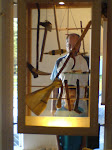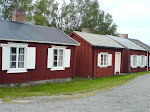they will love me,
If I would always be sweet, never
angry, do everything exactly as
my mother wishes, then
tomorrow, tomorrow they will love me
If I would just feel exactly the right thing
and think the right thing
and never err, then
tomorrow, tomorrow they will love me”
The false hope defence mechanism consist of denying the childhood truth that our needs will never get met by telling ourselves that it is possible to get them met, if we could only do or be what our parents want us to do or be; nicer or smarter or quieter or more entertaining, or more technical, or less emotional, or more emotional, etc. However, this strategy never works because the truth is that our needs as a child were not met by our environment (parents), no matter what we did or didn’t d, were or weren’t, had or didn’t have, etc.
As adults, the need that we feel so strongly in the present is actually the old childhood need that never got met. So therefore, anything that we try to accomplish when we employ the false hope defence mechanism is doomed to fail. No matter what we do, we will not ever get what we needed then. The child then didn’t get what she needed and the adult now can never do anything in the present to change that. We can’t go back to change the past. So our children can’t give us what we lacked either… How much they even try or struggle to do that.
A metaphor: suppose that you were hungry and even starving as a child. You could eat as much as you want today, but it will never change the fact that you were starving as a child! It’s the same with other needs you didn’t get filled then…
So this grown up woman can never lie down in a hammock in the summer and just relax. If she does she feels an enormous guilt and badness, the heavy burden over all she ought to and should do (to get that love she never got then, and will never get today either from those she needed it then, to be good enough at last). She can’t really enjoy having it good or nice or comfortable… Her children are forced to fulfil her needs… And this has instilled guilt in them too… They got guilt with the mothers milk literally??
Imagine a woman who has a strong need for approval from her partner. She tries to get his approval by doing things exactly the way he wants to (a spine reflex; not making others upset or angry or impatient, jumping high if someone raise his/her voice). Since this is an old need, no matter what she does, she will never be able to get enough approval to satisfy her old need, or to make her feel safe and secure or good enough. The need will always remain, even if her partner tells her everyday how glad he is that she does all these tings for him. Because it is a childhood need, any appreciation he offers will not be adequate. She might think he didn’t mean it /…/ or she might literally not hear him when he tells her what he thinks of her or forget rather quickly. In the end she will always doubt how much he appreciates her. And her self esteem will not change to a better one how much he even say how clever she is. She need to handle this in another way… Work on it…
The reason is so obvious /…/ we can never satisfy an old unmet need. No matter how much it seems to be met in the present. However, since false hope gives us a (albeit temporary and fleeting) sense of hope, it has the capacity to make us feel good as long as it lasts, which is until it inevitably crashes.
No matter how perfectly fixed up at home, a perfect garden, a group of very cute and well mannered children, active, fantasising and successful in school then and with proper educations later… Nothing matters… Nothing will fill this hole. How much her children even struggle, they will never satisfy her mother if they so work till they fall dead. And they aren’t really allowed to be too clever either, because she hasn’t the school background as they have… They have to think of mom and her low self esteem… Even as grown up… And middle age…
Nothing that happens in the present adult reality will be able to change these facts and therefore the feeling that goes with it. We can’t change the past, but we can heal its consequences on our lives now.
Totally help- and powerless. With self destructive traits, not taking properly care of herself. Thus instilling guilt, forcing her children to think of and take care, and maybe not get angry at her, not raising their voices? The she would die? If anyone told her the “truth”!??
What about open, genuine talk grown ups between? A wall…
Yes, as with the blogpost about "a father" I have used what Bosch has written, changed a little, but very little...
Som vuxna så är den känsla som vi känner så starkt i nuet i själva verket ett gammalt barndomsbehov som aldrig möttes. Så därför kommer allt vi som vi försöker göra fulländat/utföra när vi använder falskt-hopp-försvarmekanismen dömt att misslyckas. Det spelar ingen roll vad vi gör, så kommer vi aldrig att få det vi behövde då. Barnet då fick inte det hon behövde och den vuxna nu kan aldrig göra något i nuet för att ändra detta. Vi kan inte gå tillbaka för att ändra det gångna. Så våra barn kan inte heller ge oss det vi saknade… Hur mycket de än anstränger sig.
En metafor: tänk dig att du var hungrig och till och med svältande som barn. Du kan äta hur mycket du vill idag, men det kommer aldrig att ändra det faktum att du svalt som barn! Det är samma sak med andra behov som du inte fick fyllda då…
Så denna vuxna kvinna kan aldrig ligga ner I en hängmatta på sommaren och bara koppla av. Om hon gör det känner hon enorm skuld och dålighet, den tunga bördan över allt hon borde göra och skulle göra (för att få den där kärleken hon inte fick då och aldrig kommer att få idag heller från dem som hon hade behövt få det då, att vara god nog). Hon kan inte riktigt njuta av att ha det bra eller trevligt eller bekvämt… Hennes barn är tvingade at fylla hennes behov… Och detta har fyllt också dem med skuld… De fick skuld med modersmjölken bokstavligen…
Föreställ dig en kvinna som har ett stort behov av bifall från sin partner. Hon försöker få hans bifall genom att göra saker exakt som han vill att hon ska göra (en ryggmärgsreflex, för att inte göra någon arg, upprörd, otålig, om någon höjer rösten hoppar hon högt). Eftersom detta är ett gammalt behov så spelar det ingen roll vad hon gör, hon kommer aldrig att lyckas få tillräckligt med bifall för att tillfredssälla sitt gamla behov eller för att känna sig säker och trygg eller tillräckligt bra/dugande. Behovet kommer att finnas kvar även om partnern talar om för henne varje dag hur glad han är att hon gör alla de saker hon gör för honom. Därför att det är ett barndomsbehov, kommer ingen uppskattning han erbjuder att vara adekvat. Hon kan komma att tänka att han inte menar det /…/ eller så kan hon bokstavligen inte höra honom är han talar om för henne hur mycket han uppskattar henne. Och hennes självförtroende kommer inte att ändras till ett bättre hur mycket han än talar om för henne hur duktig hon är. Hon måste hantera detta på något annat sätt…
Skälet är så uppenbart /…/ vi kan inte tillfredsställa ett gammalt omött behov. Det spelar ingen roll hur mycket det ser ut att bli mött i nuet. Dock, eftersom falskt hopp ger oss en (ehuru tillfällig och flyktig) känsla av hopp, har det kapaciteten att få oss att känna oss bra så länge det räcker, vilket är tills det oundvikligen kraschar.
Ingenting som händer i den nuvarande vuxenverkligheten kommer att kunna ändra dessa fakta och därför känslan som följer med den. Vi kan inte ändra det gångna, men vi kan hela dess konsekvenser över våra liv nu.





























Inga kommentarer:
Skicka en kommentar